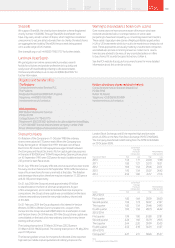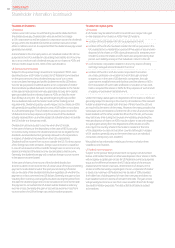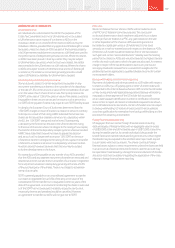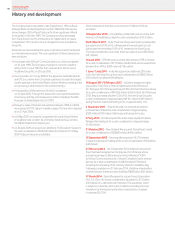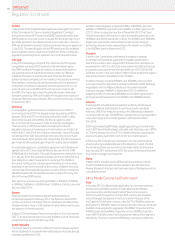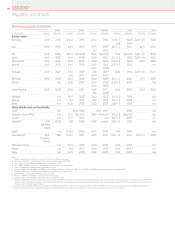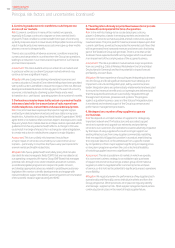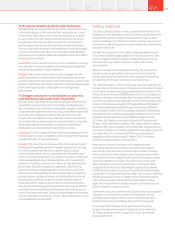Vodafone 2014 Annual Report Download - page 193
Download and view the complete annual report
Please find page 193 of the 2014 Vodafone annual report below. You can navigate through the pages in the report by either clicking on the pages listed below, or by using the keyword search tool below to find specific information within the annual report.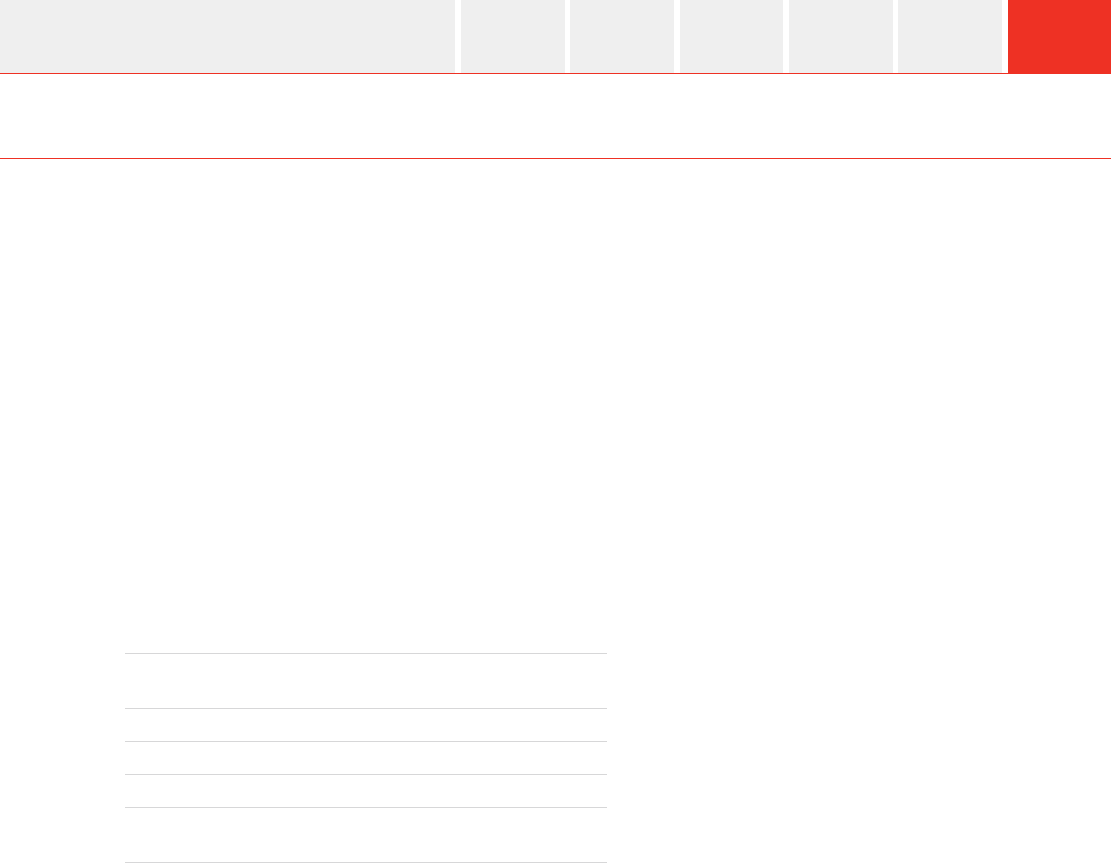
Our operating companies are generally subject to regulation governing
the operation of their business activities. Such regulation typically
takes the form of industry specic law and regulation covering
telecommunications services and general competition (antitrust)
law applicable to all activities.
The following section describes the regulatory frameworks and the
key regulatory developments at the global and supranational level
and in selected countries in which we have signicant interests during
the year ended 31 March 2014. Many of the regulatory developments
reported in the following section involve ongoing proceedings
or consideration of potential proceedings that have not reached
a conclusion. Accordingly, we are unable to attach a specic level
of nancial risk to our performance from such matters.
European Union (‘EU’)
In September 2013, the European Commission (the ‘Commission’)
delivered major regulatory proposals aimed at building a telecoms
single market and delivering a “Connected Continent”. These proposals
have been amended by the European Parliament and will now
be reviewed by the European Council. The Commission’s proposals
include the following:
a a simplied notication process for telecommunications operators
across the EU;
a removal of all roaming surcharges after June 2016;
a increased transparency requirements for consumers;
a harmonisation of Spectrum allocation rules; and
a net neutrality requirements, which include restrictions on blocking,
slowing down or discriminating against any internet content.
Roaming
The current roaming regulation came into force in July 2012 and
requires mobile operators to supply voice, text and data roaming
services under retail price caps. Wholesale price caps also apply to voice,
text and data roaming services.
The roaming regulation also requires a number of additional
measures which are intended to increase competition in the retail
market for roaming and thereby facilitate the withdrawal of price
caps. These include a requirement that users be able, from July
2014, to purchase roaming services from a provider other than their
current domestic provider and to retain the same phone number
when roaming.
Fixed network regulation
In September 2013, the Commission published its recommendation
on costing methodologies and non-discrimination which aims to
encourage Next Generation Access (‘NGA’) investment. NGA networks
of operators with Signicant Market Power (‘SMP’) may be exempt
from cost-oriented wholesale prices if access is provided on the basis
of equivalence of inputs (i.e. exactly the same products, prices and
processes are offered to competitors) with effective margin squeeze
tests to ensure technical and economic replicability. Copper wholesale
network prices are expected to remain within a guide price band of €8 to
€10per month.
Europe region
Germany
The Federal Network Agency (‘BNetzA’) has indicated that the
envisaged merger of Telefónica Deutschland and E-plus will have
implications for spectrum allocation, and this is expected to impact the
current proceedings on 700MHz, 900MHz, 1500MHz and 1800MHz
licensing (Project 2016). BNetzA is unlikely to decide on the further
procedure until the envisaged Telefónica Deutschland/E-plus merger
is nally decided in mid-2014.
The national regulator is currently consulting on new mobile termination
rates (‘MTR’s), with a decision due to be announced in December 2014.
Italy
Vodafone Italy, along with other Italian mobile operators, is the subject
of an investigation by the Italian Antitrust Authority following a dawn
raid in November 2012. This followed a complaint from an MVNO that
it had been excluded from the market. The investigation is ongoing and
Vodafone Italy is cooperating with the Antitrust Authority.
Vodafone Italy has appealed against the injunction of the national
regulator (‘AGCOM’) ordering them to adopt all measures required under
the Roaming Regulation in relation to roaming charges within a tariff.
For information on litigation in Italy, see note 30 “Contingent liabilities”.
United Kingdom
In October 2013, the national regulator (‘Ofcom’) began a consultation
on revising the annual licence fees payable on licences for the use
of spectrum in the 900MHz and 1800MHz bands, to reect market
value and with regard to the sums bid in the 4G auction. The 900MHz,
1800MHz and 2.1GHz licences have been made technology-neutral,
allowing them to be used for 4G.
Spain
In June 2013, the Spanish Parliament adopted Act 3/2013 creating
the National Markets and Competition Commission (‘CNMC’)
as the new national regulator, responsible for both competition and
regulatory matters.
In August 2013, Vodafone Spain led a competition complaint with
the competition authority against Telefónica and Yoigo for an alleged
unauthorised transfer of the use of Yoigo’s spectrum to Telefónica
with a parallel complaint led to the Ministry in September 2013.
The Ministry rejected that complaint in November 2013 and Vodafone
Spain has submitted an administrative appeal against this decision
in December 2013, stating that Yoigo and Telefónica are undertaking
an unauthorised spectrum sharing arrangement. The Ministry has not
yet announced its decision.
In February 2014, Vodafone Spain lodged a competition claim
before the national regulator against Telefónica citing abuse of its
dominant position in both its bre roll-out and bre retail offers as well
as subscribing to anticompetitive agreements with Jazztel.
In March 2014, the national regulator concluded there were
no sanctions to apply against Telefónica, Orange and Vodafone in the
margin squeeze case that was originally brought to them by a MVNO
in January 2012.
The nes applied to Telefónica, Orange and Vodafone Spain in
December 2012 for abuse of dominant position by imposing excessive
pricing of wholesale SMS/MMS services on MVNOs, remain suspended
until the judicial review is concluded.
Netherlands
In November 2013, the investigation of the Dutch competition
authority (‘ACM’) into the three mobile operators (KPN, T-Mobile and
Vodafone Netherlands) concluded without any ne being imposed.
ACM determined that there were no price-xing agreements in the
mobile-telecommunications market. However, ACM did establish that
public statements about future market behaviour could carry antitrust
risks. The three operators have therefore made a commitment to ACM
that they will refrain from making certain statements about future
market behaviour in public to avoid any risk of illegal collusive behaviour
in the future.
191Overview Strategy
review Performance Governance Financials Additional
information
Regulation




